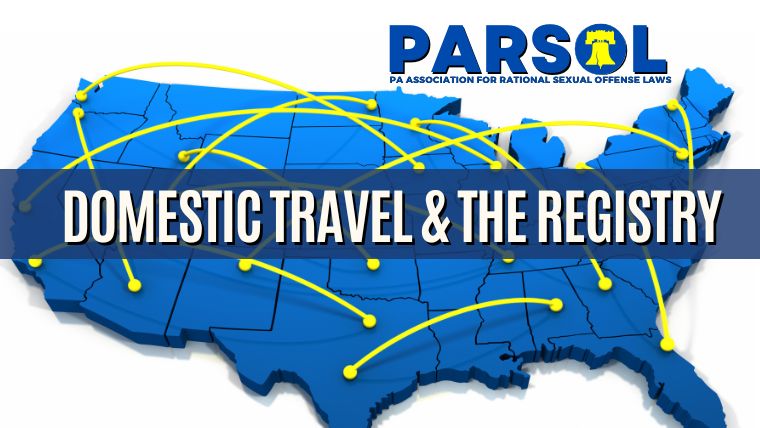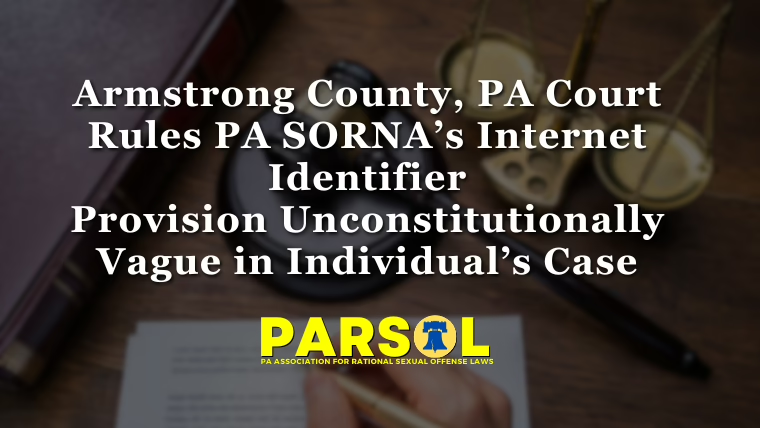Involvement with the legal system in the United States can be a traumatizing experience. For those who have been found guilty of crimes of a sexual nature, this process almost always results in a massive upheaval of what is considered normal. The dread of what is going to play out in the courts, the shame of exposure, and the remorse for what might have been done to victims can leave a person wondering if they will ever feel hopeful for the future again. Once a judgment has been made and a sentence has been served, the consequences and anxieties continue when people are placed on a public sex offense registry, often for the rest of their lives.
As the holidays approach, many people will start making plans to visit family. But for Persons Forced to Register (PFR), the idea of travel might be out of the question, especially if out of state.
The sex offense registries that exist as law in all US states and territories are a tangled web of statutes with specific requirements that carry stiff penalties if they are not followed. States do not cooperate regarding the specifics of what each requires. A PFR who wants to visit another state is, therefore, subjected to an entirely new set of laws, which must be studied and complied with if they want to be secure in a belief that they are not committing a felony offense.
If a Pennsylvania resident on the registry wants to play by the rules, there are several hurdles to cross.
The PA laws around travel must be understood.
- For Subchapter H people whose offense occurred after Dec. 2012, the State Police must be notified of travel plans if the travel is for seven or more days (considered temporary lodging). A PFR must appear in-person at a registration site to report “A commencement of temporary lodging, a change in temporary lodging or a termination of temporary lodging. … the individual must provide the specific length of time and the dates during which the individual will be temporarily lodged.
- If under Supervision, permission from the parole/probation officer to travel must be secured before any of the above steps are taken. If they are also required to attend sex offense counseling, approval from the treatment provider is often required as well for the parole/probation officer to approve travel.
The laws of the state to which the PFR is visiting must be understood.
There are literally 50+ sets of laws for 50+ states and territories that vary around (i) The amount of time that a PFR can visit a state without having to notify law enforcement varies from state to state. (ii) The list of offenses that need to be registered for, and the amount of time that has passed since the offense occurred, are different in each state.
To be sure that a PFR is complying with the law and not committing a felony offense, they need to carefully read and understand the wording of the state statutes. While a PFR can call the local sheriff or state police for advice, the person on the phone may not have a full understanding of the wording of the law. The best resource that we have is a 25-page document that summarizes all of the state laws. This can be found at the “Atwo Zee” blog, also known as The Registered Traveler*.
The consequences of complying with these laws must be understood.
- Some states will not remove you from their registry once you are placed on it. This means that even if a PFR’s time on the Pennsylvania registry ends, they will still come up on background searches as being on a sex offense registry, and their photo will still be on the national sex offense public website.
Because of all of these steps, the difficulty in understanding these laws, and the risk of re-experiencing the trauma of being arrested and charged with a felony, many PFRs will simply stay at home. For many, going through the system again is too much to bear and not worth the risk.
How many trips have PFRs passed on because of the fear of arrest?
The national parks, incredible food, and the dozens of cultures and peoples of our nation are left on the table because of the fear of being arrested for not complying with registries. Bonds with family and friends can be weakened as years pass without an in-person visit.
We should not have public registries for people who have been sentenced and have done what they can to move on with their lives. If we are going to have them, though, our state governments owe it to the over 800,000 people listed nationwide as well as their loved ones to make these laws crystal clear. States need to coordinate with other states to make the god-given right to travel as simple as it can be.
| Registrant Travel Resource | Website |
|---|---|
| ATwoZee Registered Travel – Domestic Travel Blog | https://atwozee.blogspot.com |
| PFR International Travel Guide | https://pfr.guide |
| Person First Travel: Registrant Travel Agency | https://personfirsttravel.com |
| Just Facts Not Fear Blog | https://justfactsnotfear.com/ |
| International Travel Information (Dept of Justice) | https://smart.ojp.gov/sorna/current-law/implementation-documents/information-required-notice-international-travel |




![stuckIn1995_rally_header - PARSOL - Pennsylvania Assoc for Rational Sex Offense Laws (PA Megan's Law Resources) PARSOL Board Chair Josiah Krammes speaks at the PA Capitol Rotunda flanked by State Reps. Emily Kinkead and Tim Briggs (28 Oct 2025) [John Dawe/PARSOL]](https://parsol.org/wp-content/uploads/2025/10/stuckIn1995_rally_header.avif)